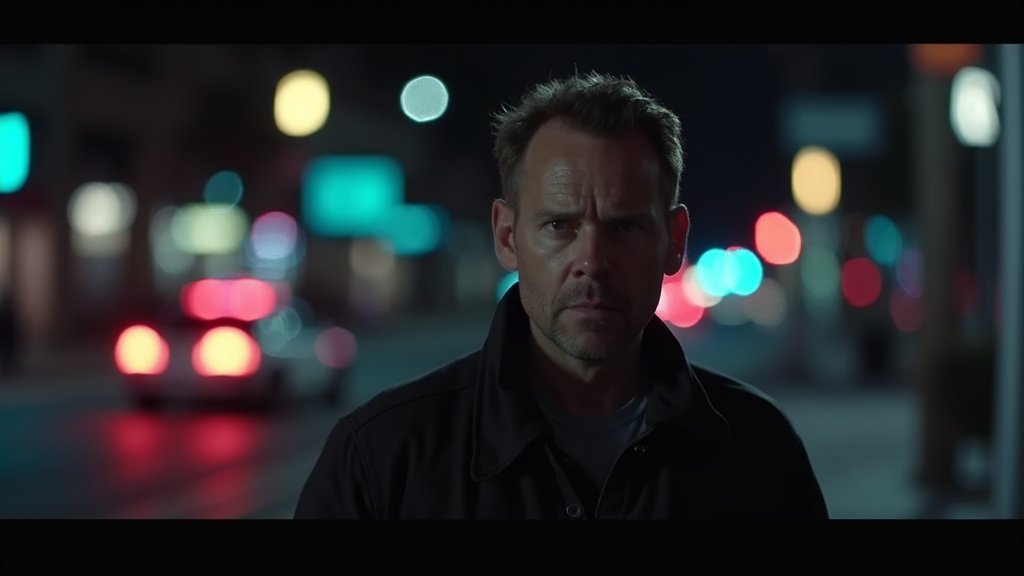Majestic Pictures, a global leader in entertainment production, today announced a significant strategic initiative aimed at fundamentally transforming its film and television production processes through the widespread adoption of artificial intelligence. The ambitious program, formally named ‘Project Aurora’, represents a substantial commitment from the studio, backed by an initial investment of $200 million over the next three fiscal years. This move positions Majestic Pictures at the forefront of exploring how advanced AI technologies can be integrated into the complex workflows of modern content creation, from initial script development to final post-production.
The initiative will be headquartered at Majestic’s primary facilities in Burbank, California, underscoring the studio’s intention to embed this technological evolution directly within its core operational infrastructure. The strategic oversight of Project Aurora falls under the purview of Clara Vexler, Majestic’s Chief Innovation Officer, signaling the importance the studio places on this endeavor at the highest executive levels.
Understanding Project Aurora
‘Project Aurora’ is designed as a comprehensive, multi-year effort to develop, test, and deploy bespoke AI tools and platforms tailored specifically for the unique demands of large-scale film and television production. The initiative is structured around integrating AI across key stages of the production pipeline.
Core areas targeted for AI integration include:
* Script Analysis: Utilizing AI to evaluate screenplays for various parameters, such as narrative structure, character arcs, dialogue patterns, commercial viability, and even potential production complexities or costs. This could potentially streamline script development and evaluation processes.
* Pre-visualization (Pre-vis): Employing AI to assist in the creation of preliminary visual representations of scenes or sequences. This could involve generating storyboards, animating simple scenes, or helping plan complex camera movements and visual effects shots, potentially accelerating the pre-production phase.
* Post-production Workflows: Integrating AI into editing, visual effects, sound design, and color grading. This could range from automated tasks like initial cuts or object tracking to more advanced applications in generating or enhancing visual and auditory elements.
The goal is not merely automation but the creation of sophisticated tools that augment human creativity and efficiency, allowing filmmakers and artists to focus on higher-level creative decisions by offloading repetitive or data-intensive tasks to AI systems.
The Investment and Timeline
The $200 million investment committed by Majestic Pictures is earmarked for research and development, technology acquisition, infrastructure upgrades, and the training of personnel over the next three fiscal years. This significant outlay highlights the studio’s long-term view of AI’s role in its future operations and reflects the complexity and scale of integrating such technologies into established, intricate production pipelines.
The funding will support internal teams developing proprietary AI solutions as well as potential partnerships with external technology firms specializing in machine learning and creative applications. A substantial portion is expected to facilitate the seamless integration of these new tools into existing software suites and hardware infrastructures used at the Burbank, California headquarters.
Leadership and Implementation
Clara Vexler, in her capacity as Chief Innovation Officer, will provide direct oversight for ‘Project Aurora’. Her leadership role signals that the initiative is considered a critical strategic imperative rather than a purely technical upgrade. Vexler’s focus is expected to be on ensuring that the AI integration aligns with Majestic’s creative vision and operational goals, while navigating the inherent challenges of technological adoption in a creative industry.
The initial phases of implementation will involve focused pilot programs. These pilots are specifically targeting “key tentpole features slated for Q4 2025.” This strategic targeting of major upcoming productions suggests that Majestic intends to rigorously test the AI tools on projects with significant scale and complexity, providing valuable real-world data and feedback before a broader rollout. Using tentpole features allows the studio to assess the impact and effectiveness of the AI tools under high-pressure, high-stakes conditions.
Potential Impact on the Industry
Majestic Pictures’ decision to commit such substantial resources to AI integration is likely to send ripples throughout the global entertainment industry. As one of the world’s most prominent studios, its success or challenges with ‘Project Aurora’ could significantly influence the pace and direction of AI adoption across other major production houses.
The potential benefits include increased efficiency, reduced production costs over time (though initial investment is high), accelerated workflows, and potentially the unlocking of new creative possibilities previously constrained by time or budget limitations. AI could, for example, enable more complex visual effects, faster iterative creative processes, or more data-informed decision-making in script selection and marketing.
However, the initiative also raises important questions for the industry regarding the future role of human talent, the potential impact on various crafts within film and television production, and ethical considerations surrounding AI-generated content and data privacy.
Challenges and Considerations
Implementing AI on this scale within a large, established studio is not without its challenges. These include the need for significant workforce retraining, ensuring compatibility with existing technologies, managing the data requirements of AI models, and navigating the creative community’s perspectives on AI’s role in artistic processes.
Ethical frameworks for AI usage in creative fields are still evolving. Majestic Pictures will likely need to address issues such as intellectual property rights for AI-assisted creations, potential biases in data used to train AI models, and maintaining artistic control and human authorship in projects leveraging these tools. Clara Vexler’s leadership will be crucial in navigating these complex technical, operational, and ethical landscapes.
Conclusion
‘Project Aurora’ represents a bold leap forward for Majestic Pictures, marking one of the most significant publicly announced commitments by a major studio to harness artificial intelligence for core production activities. With a $200 million investment and strategic focus areas spanning the entire production lifecycle, the initiative led by Chief Innovation Officer Clara Vexler is poised to reshape how content is created at the Burbank, California headquarters and potentially set new benchmarks for the industry. The outcomes of the pilot programs targeting Q4 2025 tentpole features will be closely watched as indicators of AI’s transformative potential in the future of entertainment production.





